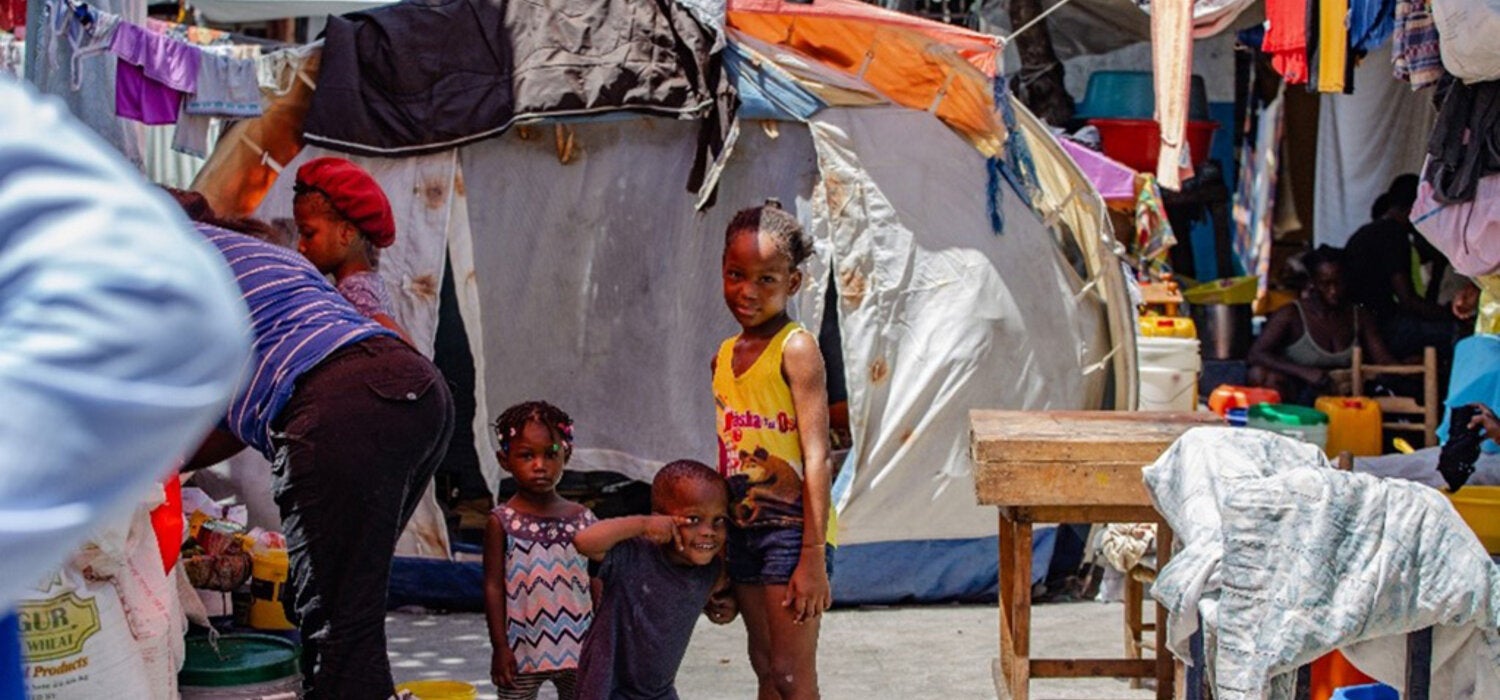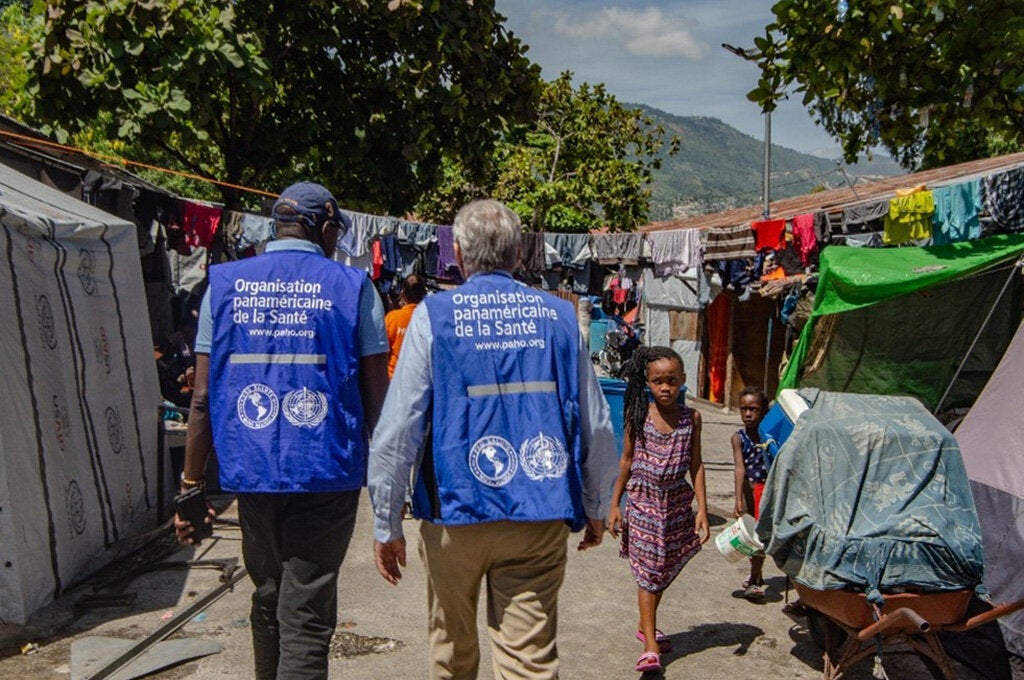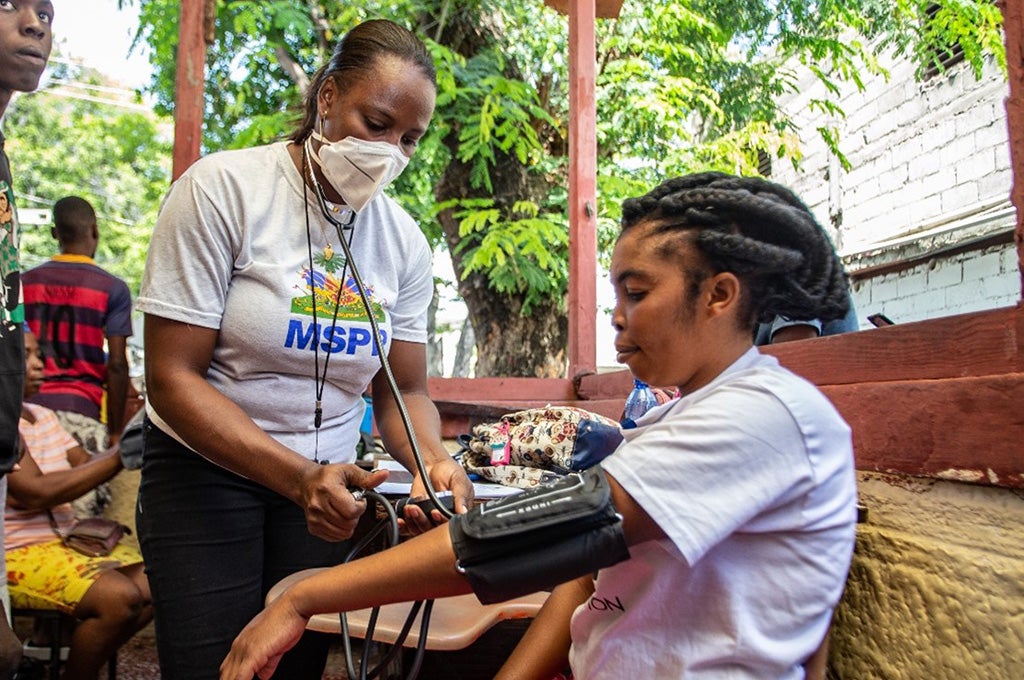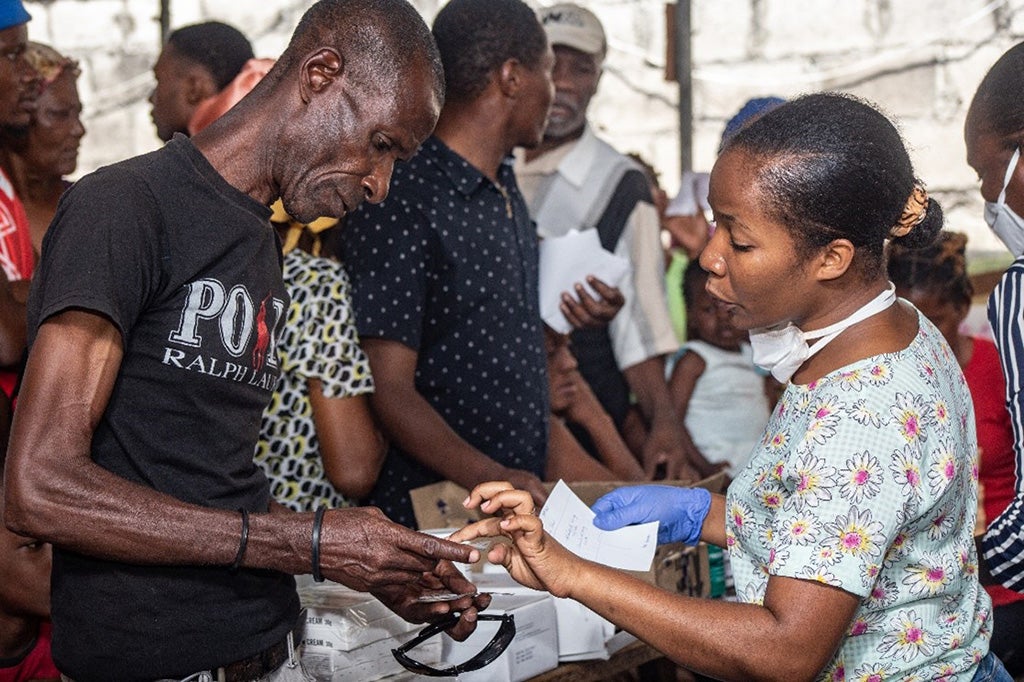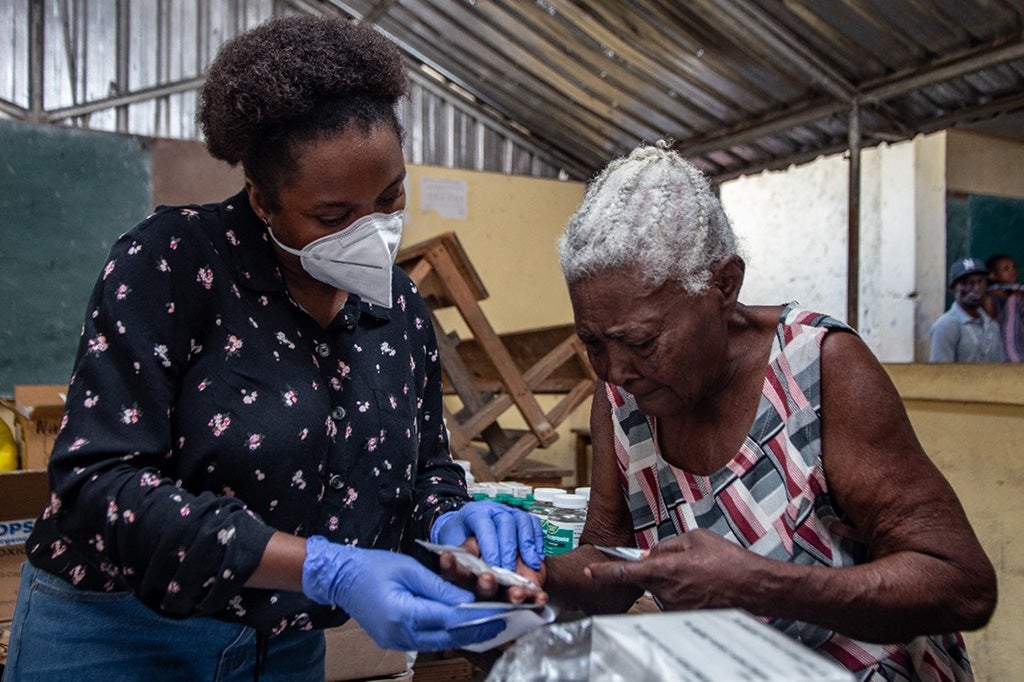For several years, Haiti has been engulfed in a socioeconomic, political and humanitarian crisis that, since mid-September 2022, reached critical levels. The situation further escalated in February this year due to armed violence and gang control of territory.
— August 2024 —
Widespread insecurity and political instability have drastically affected the country’s access to essential goods and services, such as food, water and sanitation, and health care, and forced hundreds of thousands of people to flee their homes.
Today, more than 500,000 Haitians are currently internally displaced living in host families (70%), and in make-shift camps located in schools, churches, sports facilities and community centers.
In response to this emergency situation, PAHO is working with the Ministry of Public Health and Population (MSPP) and other health partners to mitigate the ongoing strain on the health sector and protect the operational capacity of critical health facilities to continue providing emergency and essential health services to the local population.
PAHO has also been supporting the provision of health services for around 50,000 people living in 33 camps in the Port-au-Prince metropolitan area, which is just one example of the Organization’s humanitarian work in Haiti.
Due to overcrowding, a lack of access to hygiene, clean water and sanitation and the limited availability of health services, those living in the camps often face health issues such as skin infections, diarrheal diseases, and other health conditions requiring treatment.
PAHO’s support has enabled the MSPP to strengthen disease surveillance and laboratory diagnosis in the camps to prevent outbreaks of communicable diseases, as well as to provide primary health care interventions, water and sanitation (WASH) services, and specialist care in the areas of maternal health, mental health and gender-based violence support.
“PAHO’s technical and operational support to the MSPP has enabled nearly 24,000 consultations to be carried out and more than 3 tons of medicines and medical supplies have been provided for the care of internally displaced persons,” Dr. Jean-Gilbert Ndong, consultant in Emergency Humanitarian programs at PAHO in Haiti said.
Since the beginning of 2024, PAHO has provided the camps with 99 surveillance officers and 69 hygienists to conduct surveillance and sanitation activities, and has distributed over 100,000 water chlorination tablets, 900 kilograms of chlorine, and sensitized over 250,000 people.
“PAHO intends to extend its technical and operational support in the coming months as the challenges of meeting the needs of Haitians who continue to flee the violence of armed groups, continue” Dr. Ndong added.
World Humanitarian Day
World Humanitarian Day is commemorated every year on 19 August to pay tribute to humanitarian workers killed and injured in the course of their work, and to honor all aid and health workers who continue to provide life-saving support and protect the people most in need.
On 19 August 2023, a bomb attack on the Canal Hotel in Baghdad, Iraq, killed 22 humanitarian aid workers. Five years later, the UN General Assembly adopted a resolution designating 19 August as World Humanitarian Day. Each year, the day focuses on a theme to promote the safety and security of aid workers. This year, the theme is “act for humanity”.

